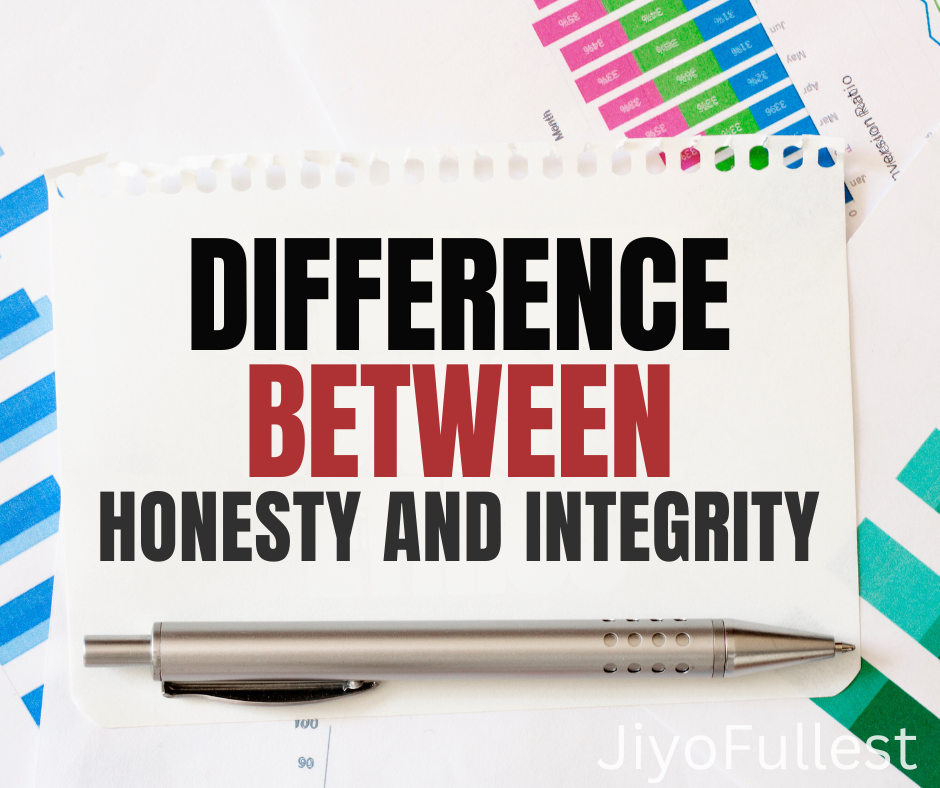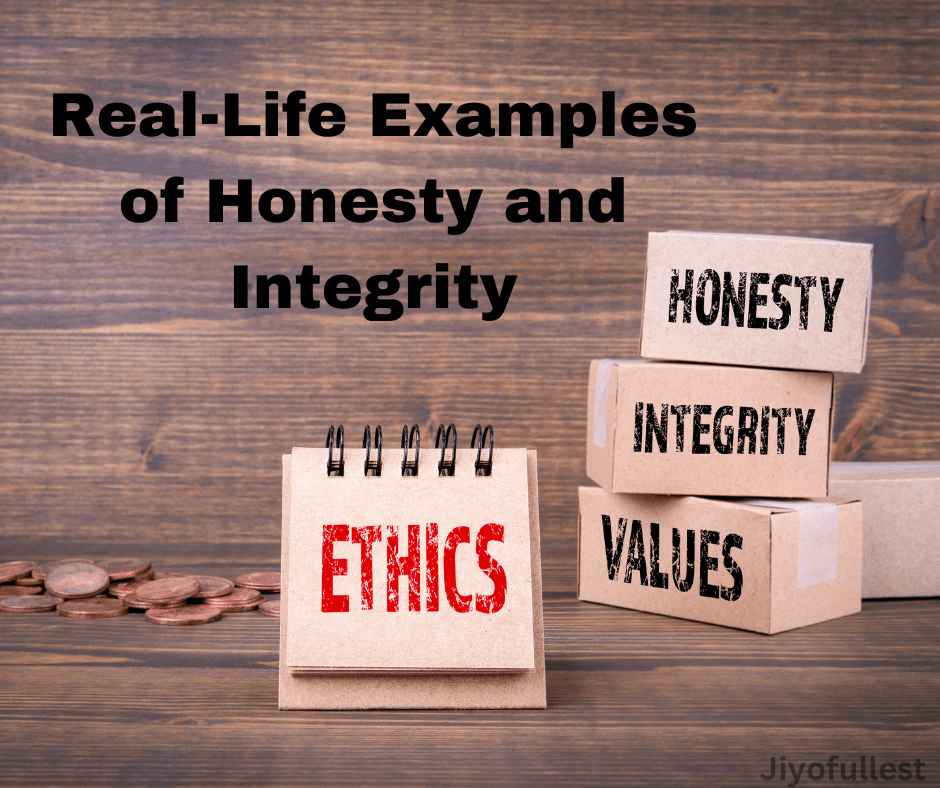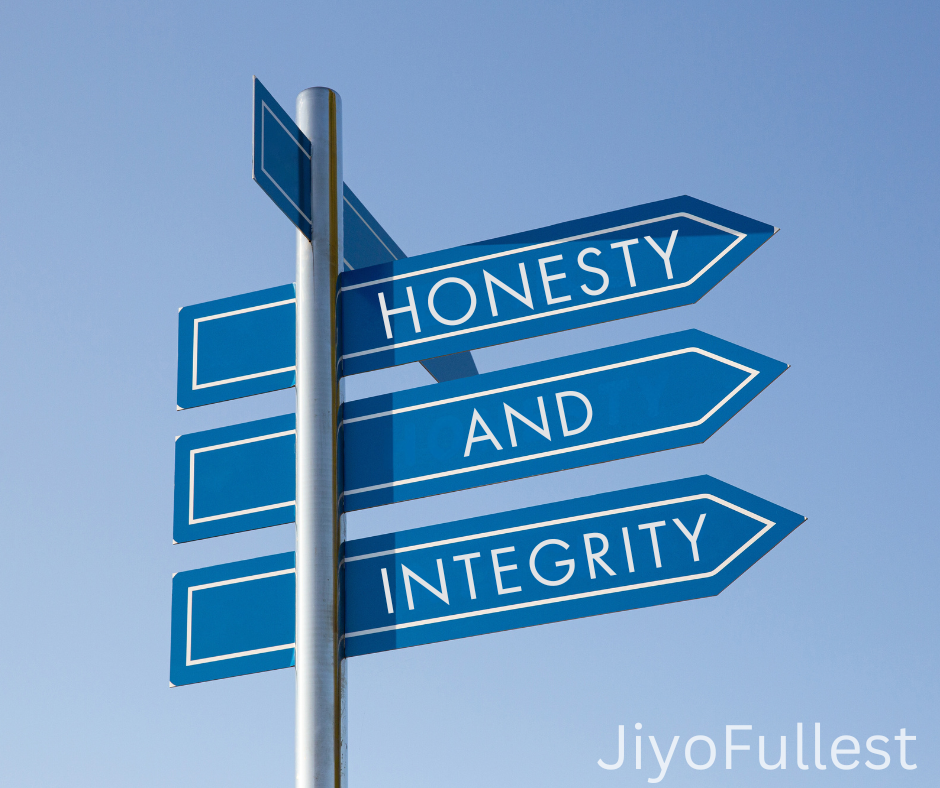In a world filled with complexities and challenges, honesty and integrity stand as guiding principles that shape our character and define our interactions with others. In this blog post, we explore the profound significance of honesty and integrity, unravel the subtle differences between them, examine their crucial role in the workplace, showcase real-life examples, and recommend insightful books to deepen our understanding and practice of these timeless virtues.
Table of Contents
ToggleUnderstanding Honesty and Integrity
Honesty and Integrity Defined:
Honesty refers to the quality of truthfulness and sincerity in one’s words and actions, while integrity encompasses the consistency and adherence to moral principles and values, even in the face of adversity.
What is Honesty?
Honesty is a fundamental moral and ethical principle that involves being truthful, sincere, and transparent in one’s thoughts, words, and actions. It entails accurately representing oneself and conveying information without deceit, falsehood, or manipulation. Honesty fosters trust, integrity, and credibility in relationships and interactions, serving as a cornerstone of moral character and ethical conduct. Embracing honesty entails a commitment to authenticity, accountability, and ethical behavior in all aspects of life.
What is Integrity?
Integrity is the quality of being honest, ethical, and morally upright in one’s actions and decisions. It involves consistency in adhering to principles, values, and ethical standards, even when faced with challenges or temptations. Individuals with integrity demonstrate reliability, accountability, and sincerity in their interactions with others. They uphold their moral beliefs and principles, even when it is difficult or inconvenient to do so. Integrity is characterized by a sense of honor, transparency, and trustworthiness, and it serves as the foundation for building strong relationships and fostering mutual respect and trust in personal and professional settings.

Difference Between Honesty and Integrity:
While honesty pertains to truthfulness in communication, integrity extends beyond honesty to encompass a steadfast commitment to moral principles and ethical conduct in all aspects of life.
| Aspect | Honesty | Integrity |
|---|---|---|
| Definition | Being truthful and transparent in words and actions. | Upholding strong moral and ethical principles consistently. |
| Focus | Telling the truth, not lying or deceiving. | Acting according to moral principles, even when no one is watching. |
| Behavior | Being straightforward and open. | Doing the right thing in all circumstances. |
| Example 1 | Admitting a mistake at work rather than covering it up. | Refusing to participate in unethical practices, even if they are commonplace. |
| Example 2 | Giving honest feedback, even if it’s difficult. | Returning extra change given by mistake, even when it would be easy to keep it. |
| Outcome | Builds trust through truthfulness. | Earns respect and credibility through ethical actions. |
Honesty and Integrity Examples in the Workplace
Promoting a Culture of Honesty and Integrity:
In the workplace, honesty and integrity serve as pillars of trust and credibility. Employers and employees alike benefit from fostering an environment where open communication, transparency, and ethical behavior are valued and rewarded.
Leading by Example:
Leaders play a pivotal role in upholding honesty and integrity within organizations. By modeling ethical behavior, demonstrating accountability, and cultivating a culture of integrity, leaders inspire trust and foster a sense of shared purpose among team members.

10 Examples of Honesty and Integrity in Everyday Life
From returning lost belongings to standing up for what is right, acts of integrity manifest in various forms in everyday life. Whether it’s admitting mistakes, honoring commitments, or speaking truthfully, individuals who embody honesty and integrity inspire respect and admiration. Here are 10 real-life examples of honesty and integrity:
- Returning a Lost Wallet: Finding a wallet with money and returning it to the owner without taking anything.
- Admitting a Mistake at Work: Owning up to a mistake on a project and working to correct it rather than covering it up.
- Rejecting Bribes: Refusing a bribe in any form, even when it could lead to personal gain.
- Paying for Unscanned Items: Realizing an item wasn’t scanned at checkout and informing the cashier to pay for it.
- Honest Feedback: Providing honest but constructive feedback to a friend or colleague, even when it’s difficult.
- Reporting an Error: Informing a bank or service provider about an error in your favor, like being over-credited.
- Sticking to Principles: Refusing to participate in dishonest practices at work, even if it could mean losing your job.
- Keeping Confidentiality: Protecting someone’s personal information and not sharing it, even when pressured.
- Fulfilling Promises: Keeping a promise, no matter how small, even when it’s inconvenient.
- Declining Unethical Opportunities: Turning down a lucrative deal or opportunity that goes against ethical principles.
These examples highlight actions that demonstrate honesty and integrity in everyday life.
Honesty and Integrity Examples for Students
Honesty and integrity play a big role in a student’s life, both in and out of the classroom. Simple actions like admitting when you don’t understand something, completing assignments without cheating, or returning lost items show honesty. Integrity means doing the right thing even when no one is watching—like following school rules, being respectful to teachers and classmates, and staying true to your values during tough situations. These small but meaningful behaviors build trust, shape strong character, and earn respect from others.

Books on Integrity and Honesty
Recommended Reading for Personal Growth:
- “The 7 Habits of Highly Effective People” by Stephen R. Covey
- “Integrity: The Courage to Meet the Demands of Reality” by Henry Cloud
- “The Power of Ethical Management” by Ken Blanchard and Norman Vincent Peale
- “The Integrity Advantage” by Adrian Gostick and Dana Telford
Suggested Read: The Power of Sub Conscious Mind
Embracing Honesty and Integrity: A Journey of Personal Growth
In a world where ethical dilemmas abound and trust is often tested, cultivating honesty and integrity becomes not just a moral imperative but a pathway to personal and professional fulfillment. By embodying these timeless virtues, we not only enrich our relationships and enhance our reputations but also contribute to a more ethical and harmonious society.
As we navigate the complexities of life and work, let us strive to be beacons of honesty and integrity, guiding lights that illuminate the path towards a brighter, more principled future.
FAQs on “Honesty and Integrity”
What is the difference between honesty and integrity?
Honesty refers to being truthful and sincere in words and actions, while integrity encompasses consistently adhering to moral and ethical principles, even in challenging situations.
Why are honesty and integrity important in personal and professional life?
Honesty and integrity are crucial for building trust, credibility, and strong relationships. They contribute to a positive reputation, ethical decision-making, and a culture of transparency and accountability in both personal and professional settings.
How can I demonstrate honesty and integrity in the workplace?
You can demonstrate honesty and integrity in the workplace by being truthful in communications, fulfilling commitments and promises, admitting mistakes and taking responsibility, treating others with respect and fairness, and upholding ethical standards and values.
What are some examples of honesty and integrity in action?
Examples of honesty and integrity include speaking truthfully even when it’s difficult, admitting mistakes and correcting them, honoring commitments and agreements, respecting confidentiality, being transparent in dealings, and treating others with fairness and honesty.
How can I cultivate honesty and integrity in my daily life?
You can cultivate honesty and integrity by aligning your actions with your values and principles, practicing self-reflection and self-awareness, making ethical choices even in challenging situations, seeking feedback and learning from mistakes, and being consistent in your words and actions.
Are there books that can help me understand and develop honesty and integrity?
Yes, several books provide insights and guidance on honesty, integrity, and ethical behavior. Some recommended books include “The 7 Habits of Highly Effective People” by Stephen R. Covey, “Integrity: The Courage to Meet the Demands of Reality” by Henry Cloud, and “The Power of Ethical Management” by Ken Blanchard and Norman Vincent Peale.
How do honesty and integrity contribute to personal growth and well-being?
Honesty and integrity contribute to personal growth and well-being by fostering self-respect, building trust in relationships, reducing stress and guilt associated with dishonesty, promoting ethical decision-making, and creating a sense of inner peace and authenticity.
Recent Posts
- Signs You Need a Mental Health Day (And How to Actually Take One)
- How to Stop Overthinking at Night: 15 Practical Techniques
- 50 Things to Do When You’re Bored at Home (No Phone Needed)
- Lucky Colors for Money by Zodiac Sign: What to Wear to Attract Financial Luck
- How to Glow up From Inside Out : 10 Tips, Checklist

